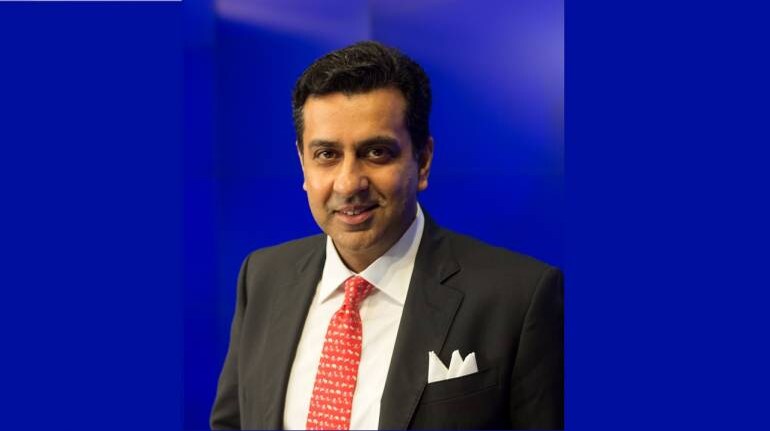



After a period of frenzied activity, it was a year of upheaval for IT service companies as clients cut spending in the face of recessionary concerns and turned cautious. Even as salaries fell from astronomical highs, they had to deal with high levels of attrition and moonlighting.
How will this expected recession play out, and what changes will it bring? According to Mphasis Chief Executive Officer Nitin Rakesh, recessionary playbooks have changed from previous instances. He asserted that business verticals once thought to be safe bets, such as managed services, are no longer so because this segment of the business is declining more rapidly.
“This year, next year, the year after, the divergence in growth in our sector will actually go up dramatically. The best growers from tech services could grow at 45 percent, while the worst will be at minus 20 percent. This has never happened before. Previously, somebody would grow 5 percent while somebody else would grow 10 percent,” he said.
Categories that will experience a steeper business decline are legacy segments that clients are trying to modernise.
“These are all companies that for the last 50 years businesses have built and operated – data centres, infrastructure services, service desk, old-school call centres – all of those will continue to get cut dramatically because there are ways and techniques to modernise the stack and reduce the cost. Cost isn't just about offshoring and reducing the number of heads from high-cost locations. Now, they (clients) are saying they have to modernise their stacks because they are spending too much money running this infrastructure,” Rakesh said.
Spending
Regarding a slowdown in client spending, Rakesh said market volatility creates a response mechanism in management teams, albeit dependent on the sectors and market segments in which they operate.
“I don't think demand has gone down, but caution has gone up. Scrutiny on spends is higher, internal reallocation of spends has been happening,” he said.
Clients are assessing whether they need to spend on a project and reallocate money to a cloud programme, reallocate money to a new data platform, build an ESG platform, or maybe wait for next year, he said.
Rakesh said clients are shifting focus to long-term impact, but horizon two or three projects (projects which nurture emerging businesses or create new capabilities) are affected.
He emphasised that the key is to be on the right side of the trend and that the cycle of getting out of legacy businesses, retiring data centres, and exiting mainframes, among other things, will alter the nature of client budgets.
“Think of it as a capex-to-opex migration. If you’re on the right side of the trend and you have the capability or alignment with the customer to actually take that new pool of money and really help them build the platform they need to build... if you have the ability to understand your customer, you can do much more targeted products and services,” he said.
Rakesh said there is no sense of urgency for metaverse projects that companies began to invest in last year and funding from some projects has been taken away.
Moonlighting
This year, the trend of employees holding multiple jobs or side gigs in addition to their primary positions gained prominence. Mphasis has let go of some such workers.
Rakesh said employees should choose between being gig workers or full-time employees and contracts must be honoured. However, he emphasised that the reasons behind moonlighting by employees must be examined.
“Either they're bored, they want to make more money, want to acquire new skills, or because that helps them find the next gig,” he said.
Mphasis has created a platform called Geek Cloud to capitalise on employees looking for side gigs. The platform was launched in June 2020 and has 10,791 of the 25,000-odd engineers on it.
The platform evolved after someone suggested two years ago the benefits of renting such in-house capacity, he said. Employees who pick up gigs, also known as work packages, are compensated monthly for the work they do.
“We create work packets and if you're registered on the cloud, whatever your skill set is — because we can link that to your skill registry — the employee can say they will deliver these two work packets, and we will pay for it,” he said.
Rakesh added that with these work packets, Mphasis can ensure there is no conflict of interest for employees. However, employees must take up these assignments in their spare time.
Through the company’s upskilling platform, employees can earn certifications and gain work experience. According to Rakesh, employees can gain additional work experience and earn extra income.
“We’re trying to create the ecosystem internally, and then maybe at some point we will open it up. Right now, we're saying instead of just rapping them on their knuckles, there is a reason why they're doing it. They want to do it. Can we not just formalise it?” Rakesh asked, adding that the issue of moonlighting is much more nuanced and depends on how it is regulated.
Discover the latest Business News, Sensex, and Nifty updates. Obtain Personal Finance insights, tax queries, and expert opinions on Moneycontrol or download the Moneycontrol App to stay updated!
Find the best of Al News in one place, specially curated for you every weekend.
Stay on top of the latest tech trends and biggest startup news.